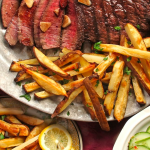Multiple sclerosis (MS) is an autoimmune disease that affects almost 2.5 million people worldwide and 400,000 in the US alone.
The carnivore diet can help with many autoimmune conditions by eliminating gut-irritating foods and instead focusing on nutrient-dense foods that don’t cause inflammation in our bodies.
There is insufficient research to show that the carnivore diet treats MS, but here we’ll break down ways in which the nutrients in carnivore diet foods may help.
TABLE OF CONTENTS
What is Multiple Sclerosis?
Multiple sclerosis is an autoimmune disease (i.e., a disease where the body’s immune system acts against its tissue) that affects the protective sheath of nerve fibers (myelin), thereby disrupting the stable connection of the brain with the rest of the body.
With this disease, patients experience symptoms like weakness of limbs, tremors with lack of coordination, vision problems, slurred speech, fatigue, dizziness, generalized body weakness and pain, and problems with sexual and urinary functions.
How the Carnivore Diet May Help Multiple Sclerosis
There are multiple risk factors for getting multiple sclerosis, some of which are nutrient deficiencies. Having low levels of vitamin D and iron in the body can predispose you to this disease.
A carnivore diet of only meat contains an abundance of healthy nutrients such as protein, fats, vitamin D, vitamin A, sodium, iron, magnesium, and potassium.
All these nutrients potentially help multiple sclerosis in different ways.
Iron
Iron is one of the essential nutrients necessary for the development and proper myelination of the nervous system during the developmental process. The carnivore diet, especially when it contains organ meat (such as beef liver or cod liver), is a rich source of iron.
According to the USDA, 100g of beef liver contains 17.9 mg of iron. Iron we get from animal sources is easily absorbable, so no matter how much spinach you eat, the iron from meat is much better for you.
As iron strengthens the development of nerves, it may help you fight multiple sclerosis.
Vitamin D and Calcium
Research has shown that people living in areas closer to the sun have lower chances of getting MS.
Adequate levels of vitamin D and calcium can be protective against MS because of the positive effects of vitamin D on the immune system. Patients diagnosed with MS are advised to maintain adequate vitamin D levels.
The carnivore diet offers foods rich in vitamin D, such as eggs to meat, fish, and milk. A healthy carnivore lifestyle also involves lots of natural sunlight and outdoor activity.
Biotin
Biotin helps with multiple sclerosis because it’s a vitamin B that acts as a coenzyme or cofactor in various chemical reactions — one of them being myelin production.
Myelin strengthens your nerves as it’s a fat covering for nerves. Because of this role, it was one of the early nutrient supplements that were thought to be protective against MS.
Beef liver and eggs are some excellent suggestions for Biotin — and both are key parts of the carnivore diet.
Omega 3 Fatty Acids
Multiple studies have evaluated the positive effects of omega-3 fatty acids on MS patients. Results showed that omega-3 fatty acids had a beneficial impact on glutathione reductase, an antioxidant. It also reduces the relapsing rate.
Omega 3 fatty acids are only found in a few foods like salmon and sardines, but these foods are key parts of any carnivore diet that includes fish.
Conclusion
Of course, multiple sclerosis is a complex disease and this article is not medical advice. But there is growing research to show that the carnivore diet could help people who suffer from MS and similar autoimmune issues.
Consult a doctor before you try any new diet plan, but if you feel your current diet is aggravating your symptoms more than helping, the carnivore diet may be worth exploring.
The carnivore diet can also help other health conditions:
- Carnivore diet and arthritis
- Carnivore diet and erectile dysfunction
- Carnivore diet and hair loss
- Carnivore diet for IBS
- Carnivore diet and inflammation
- Carnivore diet and insomnia
- Carnivore diet and kidney stones
- Carnivore diet and menopause
- Carnivore diet for psoriasis
- Carnivore diet and rosacea
- Carnivore diet for SIBO









Leave a Reply